|
 Secure Site
Secure Site
|
 |
Archive for the 'mindfulness practice' Category
When you apply a few simple techniques, you can turn your daily walk into a rewarding practice.
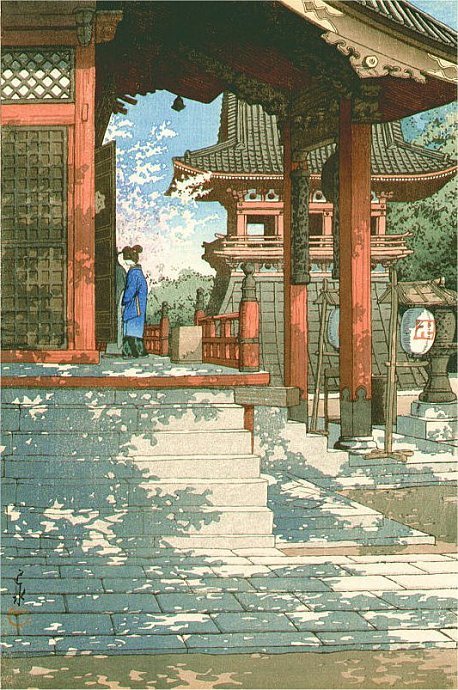 Hasui-b, Meguro Fudo What is mindful walking? It’s a technique that uses awareness of the mind/body connection to improve the quality of your walking experience on all levels. By approaching a walk in a mindful way, you make it a practice like yoga, meditation, or tai chi; every session brings new insights and challenges. As in yoga, you think about your body position, breathing, movements, and awareness, turning inward and outward at the same time. You’re working to get fit, and to improve your life as a whole. Treat walking as a practice, and it will become not only something you do with your legs but also a way to bring your mind, body, and spirit into balance.
Five Steps to Make Walking a Mindful Practice
- Identify your intention. The key to any mindful activity, intention provides focus and motivation, elevating your practice from routine to ritual. What is your intention? To walk for an hour every day? To develop a sense of centeredness and calm? To reduce stress? Your goals and intentions will evolve as you evolve. Let them, as long as they keep you in line with your higher sense of purpose — and keep you moving forward.
- Be consistent. A true practice requires ongoing attention. Of course, it’s natural to feel resistant at times, no matter what kind of activity you do. Your mind will create a thousand excuses not to walk today. Don’t let these passing thoughts distract you from your deeper intention. Get moving; start walking around your office or home, or wherever you are. You can quiet the mind by moving your body and get yourself back on track.
- Train your mind to focus. The mind loves — and craves — engagement. Without something to focus on, it will tend to wander, taking your practice with it. By learning to focus, you will be able to walk more efficiently.
- Listen to your body. As with any relationship, the connection between mind and body depends on how well one listens to the other. Our tendency is to try to rule the body with the brain; however, they are more like equal partners, offering feedback and direction as you go. Listen to what your body is trying to tell you by noticing any sensations that come up while you’re walking. You may feel energized as your leg muscles engage or relaxed as your breathing deepens. If you detect any complaint from your body, such as pain or discomfort, identify the source. Then make small adjustments in your technique and see whether the sensation lessens.
- Embrace the process. Goals provide a greater context for your practice. But building patient awareness of the process is even more important. Sometimes walking will feel easy and rewarding; other times, more like a chore. As part of a mindful practice, you accept the challenge as part of the process and continue to stick with it. My tai chi master sees difficulty as an opportunity — a lesson to be learned. Accepting all of these parts of the process lies at the heart of making walking a mindful exercise.
adapted from Body + Soul April/May 2006
 Digital Zen Alarm Clocks, meditation timers and alarm clocks with chimes
Now & Zen
1638 Pearl Street
Boulder, CO 80302
(800) 779-6383
Posted in Bamboo Chime Clocks, Goodness, Meditation Timers, Meditation Tools, mindfulness practice, Now & Zen Alarm Clocks, Well-being
 plum blossoms with moon The power of intention can be used to heal and promote good health, improve performance in many areas and even affect the future.
To be most effective, an intention should be a highly specific aim or goal, which you should visualize in your mind’s eye as having already occurred, while you are in a state of concentrated focus and hyper-awareness. When you imagine this future event, hold a mental picture of it as if it were occurring to you at that moment. Engage all five senses to visualize it in detail.
The centerpiece of this mental picture should be the moment you achieve the goal.
We might also improve the quality of our daily lives just by carrying out detailed mental rehearsals. At home, we might be able to send intentions to our children to perform better at school or to allow us to be more loving to friends and family. Human intention might be powerful enough to affect every element of our lives.
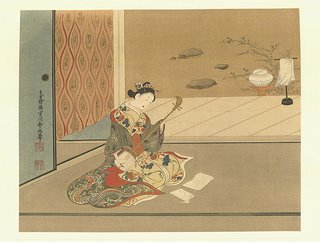 Shunsui Katsu-Miyagawa All of these possibilities suggest that we have an awesome level of responsibility when generating our thoughts. Each of us is a potential Frankenstein, with extraordinary power to affect the living world around us. How many of us, after all, are sending out mostly positive thoughts?
 Bamboo Zen Clocks, progressive chime clock and timer
Adapted from Ode Magazine, Jan/Feb 2007 by Lynne McTaggart (The Intention Experiment: Using Your Thoughts to Change Your Life and the World, Free Press 2007)
Now & Zen
1638 Pearl Street
Boulder, CO 80302
Posted in Bamboo Chime Clocks, Chime Alarm Clocks, Goodness, intention, Japanese Inspired Zen Clocks, Meditation Timers, Meditation Tools, mindfulness practice, Natural Awakening, Now & Zen Alarm Clocks
 moonviewing, sweet slumber We spend up to a third of our lives asleep. Although some hard-driving people may view sleep as an inconvenience that curtails productivity and leisure activities, slumber is certainly no waste of time. In fact, sleep may play a more crucial role than diet or exercise in fostering optimal health.
A natural restorative, sleep offers an antidote to the damage done to our bodies during the day. It allows the body to replenish its immune system, eliminate free radicals, and ward off heart disease and mood imbalances. When sleep is disrupted—whether by lifestyle factors, insomnia, sleep apnea, narcolepsy, restless legs syndrome, jet lag, sleepwalking, night terrors, imbalance of hormones, or some other disorder—emotional and physiological health suffers. But you don’t have to accept sleep deprivation and the ills that accompany it. One way to gently snooze your way back to health is to focus on balancing your hormones.
Balance your hormones
The word hormone comes from the Greek hormon, meaning “to stir up.” Hormones are released by the various endocrine glands in the body in order to regulate energy production, growth, sexual development, stress responses, and many other functions. Because minute quantities of hormones can “stir up” so many activities in the body, when they are thrown out of balance the results can affect the entire body. Imbalances of Hormones often manifest as insomnia and other sleep problems. Key factors that can upset hormone levels include thyroid dysfunctions, perimenopause and menopause (in fact, disturbed sleep is one of the complaints that cause women to seek treatment for menopause and perimenopause), and andropause (the male form of menopause). Although hormone levels generally decline as a result of aging, they can also be affected by dietary choices, mineral deficiencies, environmental toxins and synthetic chemicals, medications, smoking, and stress.
Rather than artificially manipulating your estrogen levels with synthetic hormones and ignoring the reasons behind any imbalances of hormones, it is more valuable to determine why you have imbalances of hormones in the first place. Depending on the reason, restoring hormonal balance may be more effectively achieved with dietary changes, nutritional supplements, natural progesterone cream, herbal therapy, or traditional Chinese medicine tailored to the specific factors causing the imbalance of hormones.
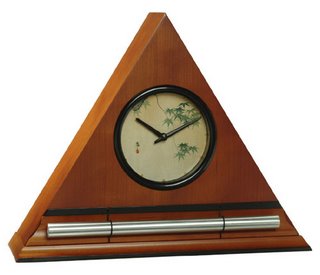 Zen Clock with Chime for a progressive awakening to sweet a slumber Now & Zen
1638 Pearl Street
Boulder, CO 80302
Excerpted from Alternative Medicine magazine’s Definitive Guide to Sleep Disorders: 7 Smart Ways to Help You Get a Good Night’s Rest (Celestial Arts, 2007)
Posted in Bamboo Chime Clocks, Chime Alarm Clocks, Japanese Inspired Zen Clocks, mindfulness practice, Natural Awakening, Now & Zen Alarm Clocks, Sleep Habits
 stillness of being Geidō refers to the way of the traditional Japanese arts: Noh (theater), kadō (Japanese flower arrangement), shodō (Japanese calligraphy), Sadō (Japanese tea ceremony), and yakimono (Japanese pottery). All of these ways carry an ethical and aesthetic connotation and appreciate the process of creation.
To introduce discipline into their training, Japanese warriors followed the example of the arts that systematized practice through prescribed forms called kata – think of the tea ceremony.
adapted from wikipedia.org
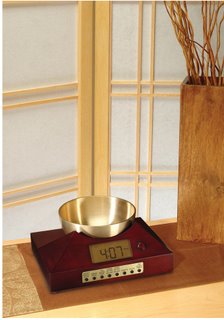 Zen Timepiece, a bowl/gong alarm clock and timer in cherry finish Now & Zen
1638 Pearl Street
Boulder, CO 80302
Posted in Chime Alarm Clocks, Japanese Inspired Zen Clocks, Meditation Tools, mindfulness practice, Now & Zen Alarm Clocks, Progressive Awakening, Well-being, Yoga Timer, Yoga Timers by Now & Zen
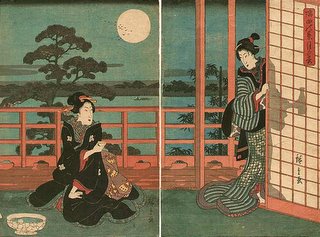 Full Moon Sumida River, Hiroshige Ukiyo-e while I walk on
the moon keeps pace beside me
friend in the water
-Masahide-
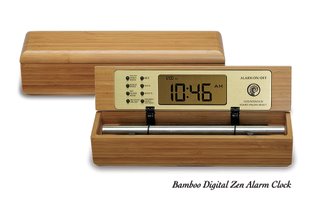 Bamboo Digital Chime Clock, a meditation timer and alarm clock
Now & Zen
1638 Pearl Street
Boulder, CO 80302
Posted in Bamboo Chime Clocks, Japanese Inspired Zen Clocks, Japanese Poetry, Meditation Timers, Meditation Tools, mindfulness practice, Natural Awakening, Now & Zen Alarm Clocks, Progressive Awakening, Ukiyo-e, Yoga Timer, Yoga Timers by Now & Zen
 Butterfly on Large Light Yellow Lilly, Kosan 1912
The falling flower
I saw drift back to the branch
was a butterfly.
–Arakida Moritake (1473-1549)
 Bamboo Digital Chime Clock, a meditation timer and alarm clock
Now & Zen
1638 Pearl Street
Boulder, CO 80302
Posted in Bamboo Chime Clocks, Chime Alarm Clocks, Japanese Inspired Zen Clocks, Japanese Poetry, Meditation Timers, Meditation Tools, mindfulness practice, Natural Awakening, Now & Zen Alarm Clocks, Progressive Awakening, Zen Timers
 lotus How mysterious!
The lotus remains unstained by its muddy roots,
delivering shimmering
bright jewels from common dew.
-Henjo (816- 890) was a Japanese waka poet and Buddhist priest.
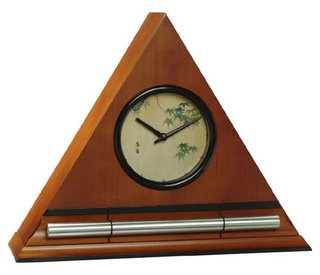 Zen Chime Clock with Japanese Maple Leaves in Honey Finish
Now & Zen
1638 Pearl Street
Boulder, CO 80302
Posted in Bamboo Chime Clocks, Chime Alarm Clocks, Japanese Inspired Zen Clocks, Japanese Poetry, Meditation Timers, Meditation Tools, mindfulness practice, Now & Zen Alarm Clocks, Progressive Awakening, Yoga Timer
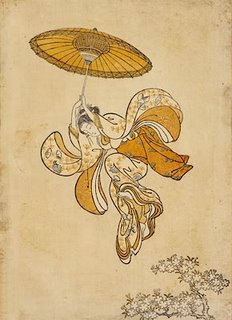 Harunobu Ukiyo-e Print, Girl Parachuting Into the Branches of a Flowering Cherry this world of dew
is yes, a world of dew
and yet…
-issa kobayshi-
 Black Lacquer Zen Alarm Clock and Meditation Timer
Now & Zen
1638 Pearl Street
Boulder, CO 80302
Posted in Japanese Inspired Zen Clocks, Japanese Poetry, Meditation Timers, Meditation Tools, mindfulness practice, Natural Awakening, Now & Zen Alarm Clocks, Well-being, Yoga Timer, Zen Timers
 Koson, Small Butterfly And Sunflower - woodblock print Butterfly
sleeping
on the temple bell.
-Buson-
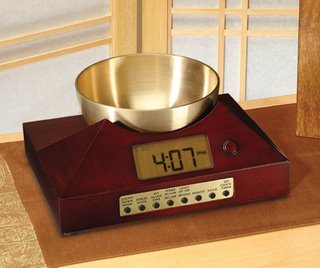 Zen Timers and Bowl/Gong Alarm Clock, Temple Bell Alarm Clock
Now & Zen
1638 Pearl Street
Boulder, CO 80302
Posted in Japanese Poetry, Meditation Timers, Meditation Tools, mindfulness practice, Natural Awakening, Now & Zen Alarm Clocks, Progressive Awakening, Ukiyo-e, Well-being, Yoga Timer, Yoga Timers by Now & Zen, Zen Timepiece by Now & Zen
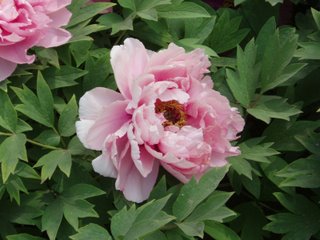 Paeonia Suffruticosa Peonies scattering,
two or three petals
lie on one another.
-buson-
 Zen Chime Clock with Maple Leaves in Honey Finish, progressive awakening clock
Now & Zen
1638 Pearl Street
Boulder, CO 80302
Posted in Bamboo Chime Clocks, Japanese Inspired Zen Clocks, Japanese Poetry, Meditation Timers, Meditation Tools, mindfulness practice, Natural Awakening, Now & Zen Alarm Clocks, Progressive Awakening, Yoga Timer, Zen Timepiece by Now & Zen
« Previous Page — « Previous Entries
Next Entries » — Next Page »
|
|
|
|